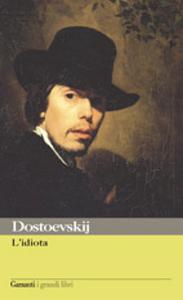You need to sign in or sign up before continuing.
Take a photo of a barcode or cover
This book was a bit of a struggle. I generally enjoy 19th-century classics, but with The Idiot it was a matter of perseverance to get the (albeit unexpected) end. There are endless similar scenes of groups of people sitting in drawing rooms having similar conversations and the conversations are not always so interesting. I was happy to reach the end.
This book was a trudge at times to get through, but the ending makes it all worth it. There are about 5 parts of the book that I found particularly exciting and which had me turning pages quickly to see what happens next. The last three or four chapters were especially like this. The story is so long and the themes complex, and I like to think that Dostoevsky brings it all to a climax and close in the final scene, even though I don't understand it all yet.
I still have much more of this book to simply think through, but at this point I am left with at least one take-away: life and death would have no meaning without resurrection (Nastasya means resurrection). What meaning does your life have when you have 3 minutes to live before you are executed? when you have two weeks to live until your illness overcomes you? What about right now, since you know not how or when but only that you will die? Is there a difference? Ippolit asks how could the disciples believe, looking at the perfectly dead corpse of the man Jesus, "that this sufferer would resurrect?" And Myshkin observes that such a sight can cause a man to lose his faith. This book doesn't answer the question, but instead steeps the reader in the existential darkness of the tomb of Holy Saturday and allows--indeed, obliges--the reader to answer for him/herself.
I still have much more of this book to simply think through, but at this point I am left with at least one take-away: life and death would have no meaning without resurrection (Nastasya means resurrection). What meaning does your life have when you have 3 minutes to live before you are executed? when you have two weeks to live until your illness overcomes you? What about right now, since you know not how or when but only that you will die? Is there a difference? Ippolit asks how could the disciples believe, looking at the perfectly dead corpse of the man Jesus, "that this sufferer would resurrect?" And Myshkin observes that such a sight can cause a man to lose his faith. This book doesn't answer the question, but instead steeps the reader in the existential darkness of the tomb of Holy Saturday and allows--indeed, obliges--the reader to answer for him/herself.
challenging
slow-paced
Plot or Character Driven:
Character
Strong character development:
Yes
Loveable characters:
Complicated
Diverse cast of characters:
Yes
Flaws of characters a main focus:
Yes
I don't get it, there was no discernable plot, it was just 670 pages of inane conversations among middle class Russians.
dla tak wybitnej książki warto (czasem też wybitnie) pomęczyć się z wolną akcją. no i to zakończenie!
challenging
dark
emotional
reflective
sad
tense
medium-paced
Plot or Character Driven:
Character
Strong character development:
Yes
Loveable characters:
Complicated
Diverse cast of characters:
No
Flaws of characters a main focus:
Yes
Least favorite Dostoevsky so far
Less of an idiot than I was led to believe
Less of an idiot than I was led to believe



